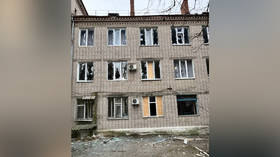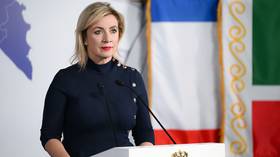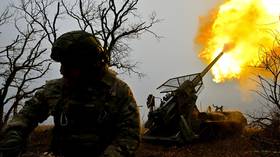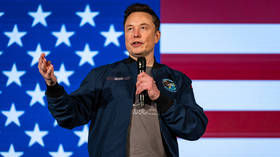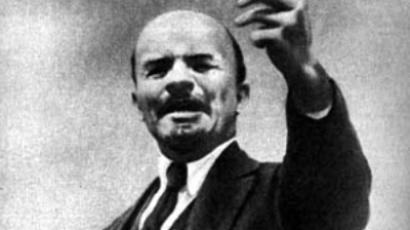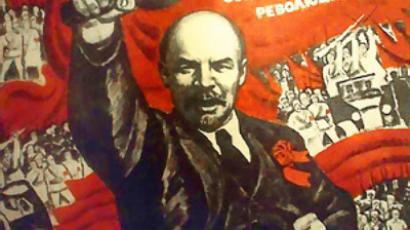Lenin’s 140th anniversary: opinions divided
It is 140 years since the father of Russian communism, Vladimir (Ulyanov) Lenin, was born and although it's being marked in Russia and worldwide, Lenin's mark on 20th century history remains deeply divisive.
The Russian Communist party marks the date by laying flowers at Lenin’s Mausoleum on Red Square. However, opinions about Lenin vary in broader society. To some, he changed the world for the better, but others insist his totalitarian state destroyed millions of lives.
And for yet another group of people the name is just a means to make money. Whatever negative comments he gets for impersonating Lenin, Sergey Solovyov shrugs them off and stands his ground. For him, Lenin is just business and it sells. Assuming the distinctive image is a definite attraction for those who want a shot of themselves next to the controversial Soviet leader. He gets almost US$20 for just one photo, the profits from his other job as a car mechanic do not come even close to that windfall.
“Lenin is especially popular among foreigners. But I have to say they are more stingy when it comes to money. But they understand: Lenin sells, just like everything else in this world,” claims Solovyov.
…those are values of justice, when everyone is born equal…
And just as you start thinking the spiritual father of the Soviet people is now just a retro souvenir, you meet people like historian Yaroslav Listov, who still praises Lenin’s ideas. The 27 year-old started admiring Vladimir Ilich Lenin when he was at school, at the time he watched Lenin’s portraits and statues being discarded like rubbish. Yaroslav Listov states “For me, he is the person who changed the world. I share his values. Those are values of justice, when everyone is born equal and can achieve something regardless of their social status.”The founding father of the Soviet Union, Lenin dreamt of workers ruling the world. And to that end, before the revolution of 1917, he called for people to pick up whatever weapons they had and slaughter the local authorities.
Many followed the call. A relentless Red Terror was unleashed against those who disagreed with Bolshevik policies.
In the 1920’s, sensing the flaws of the new system, Lenin adopted a new, slightly more liberal economic policy, which came to an end with his death and the rise of Stalin.
Lenin’s real name was Vladimir Ulyanov. In the house where he was born there is a museum now, a major tourist destination in the city, just like all the other houses where Lenin had lived. What is interesting, housekeepers say most of their visitors are young people.
Simbirsk, the city on the Volga river where Lenin was born, was renamed Ulyanovsk in his honor in 1924.
Now Vladimir Ilich is a top brand there, looking at you from numerous mugs, t-shirts, and fridge magnets.
…he was a bloody dictator, just like Stalin and Hitler…
But some, like historian Dmitry Tocheny, say it is a shame, and the city should be given its old name. Tocheny believes that “The civil war, that he was responsible for, killed up to 13 million people. Let’s not forget over 2 million, the cream of the crop, left Russia, escaping from his policies. He was a bloody dictator, just like Stalin and Hitler.”Hero, or villain, to some just a souvenir while to others, despite all the controversy about his legacy, polls show the most common feeling towards Lenin in Russia now is indifference.
Historian Sergey Kudryashov, an editor from “Rodina” magazine in Moscow, believes that public discussion of Lenin and his impact on Russian history may bring the opponents to a common point.“For the past two decades his image changed drastically, because in the ’90s, when the entire system changed, Lenin was a sort of symbol of the old regime,” Kudryashov told RT. “And we heard a lot of criticism about that figure and a lot of new documents appeared in Russian archives, so a new image of Lenin appeared in Russian history.”
“Historians still argue about his impact on history, unfortunately there are still some documents classified in Russian archives, but the more we see and the more we discuss the problem, I think, we reach more or less a joint position on that particular figure,” he added. “Only some historians, extreme left or extreme right, disagree about the role of this politician.”
Vitaly Semenov, historian, considers that the role Lenin played in history cannot be underestimated.
“He absolutely changed the country, changed the society”, says Vitaly Semenov about Lenin. “He created absolutely new laws, new conditions of human lives.”
When assessing whether the changes Lenin introduced were for the better, Semenov says there cannot be an unambiguous answer.
“From the question of belief and human morals, it was catastrophic for Russia, but from the question of new experiences for world society, it was something really interesting. Other states looked at Russia and learned a lot of lessons about what they should change. Russia was like a field of experiments”, says Semenov.
According to Dr Leonid Dobrokhotov, historian and advisor to Russian Communist Party’s leaders, Lenin’s ideas are of great topicality.
“I believe that Lenin’s and Marx’s teaching is much more actual again today than it was 10 or 20 years ago” , Dobrokhotov told RT.
On the whole, the historian says that the West and Russia are now witnessing a re-emergence of interest in Lenin’s ideas, with young people making up 95 per cent of the new followers in Russia.


